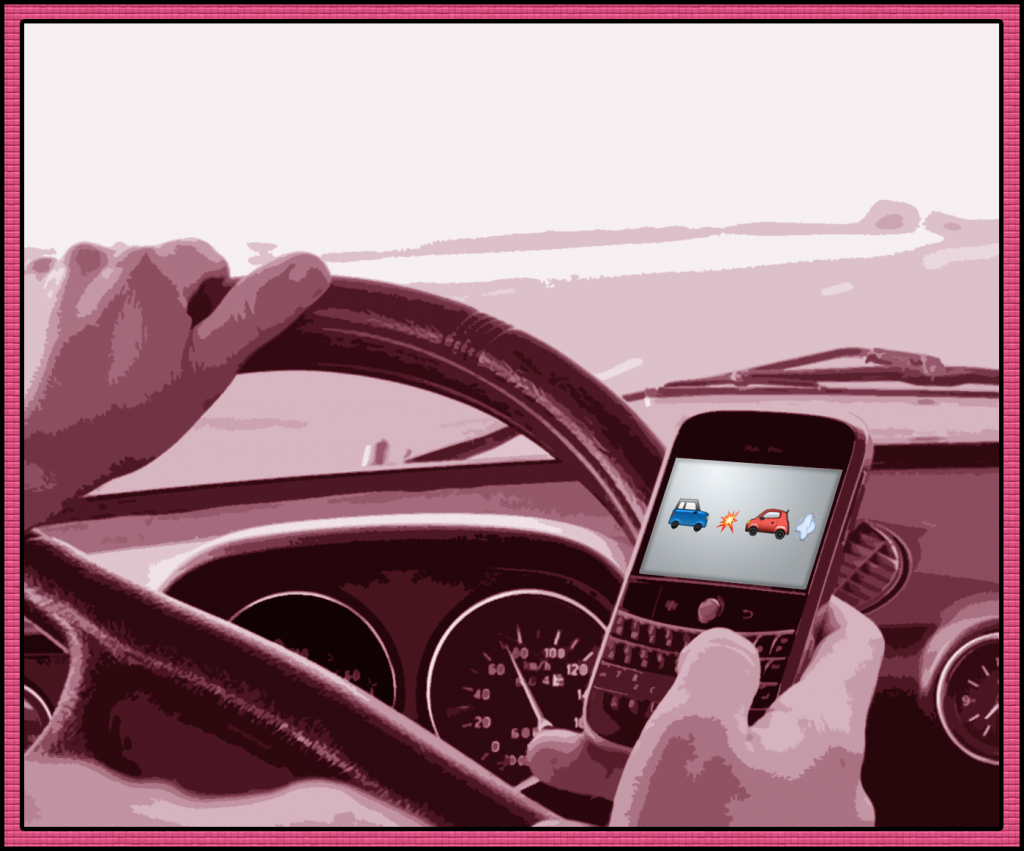Don’t text and drive; make it home alive

A teenage boy, who just got his first car, is driving to pick up his girlfriend. He looks down at his phone to send his girlfriend a text, stating that he is on his way. He begins to put his phone down when it buzzes. He picks it up to read that she cannot wait to see him. Only, she will not.
While he was sending and reading the text messages, his eyes were off of the road for a whole five seconds. He was not paying attention and ran a red light, hitting another vehicle. In the other vehicle was a family of four: a mom, a dad, a little boy and his younger sister. Only the mother and the two children survived the crash.
Scenarios like this happen way too often. People of all ages, not just teens, are guilty of using their phones while driving.
The Texas Department of Transportation states that in 2014, 100,825 traffic crashes in Texas involved distracted driving – driving a motor vehicle while engaged in another activity, typically a cell phone. Of those, 3,214 resulted in serious injuries and 468 deaths. Texting and driving does not only put one’s own life in danger, but puts those around them in danger as well. Texas has passed several ordinances prohibiting the use of cell phones while driving for teens and those with permits, but has not completely banned it.
However, the Houston Chronicle recently published an article stating that 40 cities and towns in Texas have enacted local bans on texting and driving. Houston is not one of them, but an article in KHOU says that could change soon. Cities around the Houston area that have already banned the use of cell phones while driving include: Bellaire, Galveston, West University Place, Missouri City, Tomball and recently Deer Park. The fines from violating these ordinances vary from $200 to $500.
Some people think negatively about the ordinances and are unhappy with the bans. Arguments range from accusing the government of finding reasons to fine people and make money to believing that, as adults, they have the right to risk their own lives if they want to, i.e. wearing seatbelts, helmets and other safety rules including cell phones.
Those people do not realize that the ban on texting and driving are saving other people’s lives, as well as their own. Some people have the tendency to think that they are immortal and nothing bad can ever happen to them. Others are overly confident in their driving skills and think that texting while driving could never interfere with their impeccable skills.
Unfortunately, statistics show that those beliefs are inaccurate. Even if someone is a great driver, he or she still needs to watch out for other drivers who may not have the best driving skills or judgement. How can people watch out for the other guy if their eyes are on their phone?
If you do not care about yourself, then at least think of others. Think of the people who love and want you to live a long life. At the very least, think of the innocent people who follow the rules and are careful and cautious drivers because they want to avoid accidents and death. Think of the small children who sit in the back seats and have their whole lives ahead of them.
Texting and driving is as dangerous as drinking and driving. Hopefully, the ban on texting and driving will become state wide, better yet nationwide, to stop avoidable loss of death. In the meantime, it is disappointing to think that bans have to be put in place in order for people to practice safe driving. Join the Texas Department of Transportation’s “Talk. Text. Crash.” campaign and use common sense to practice safe driving now.

